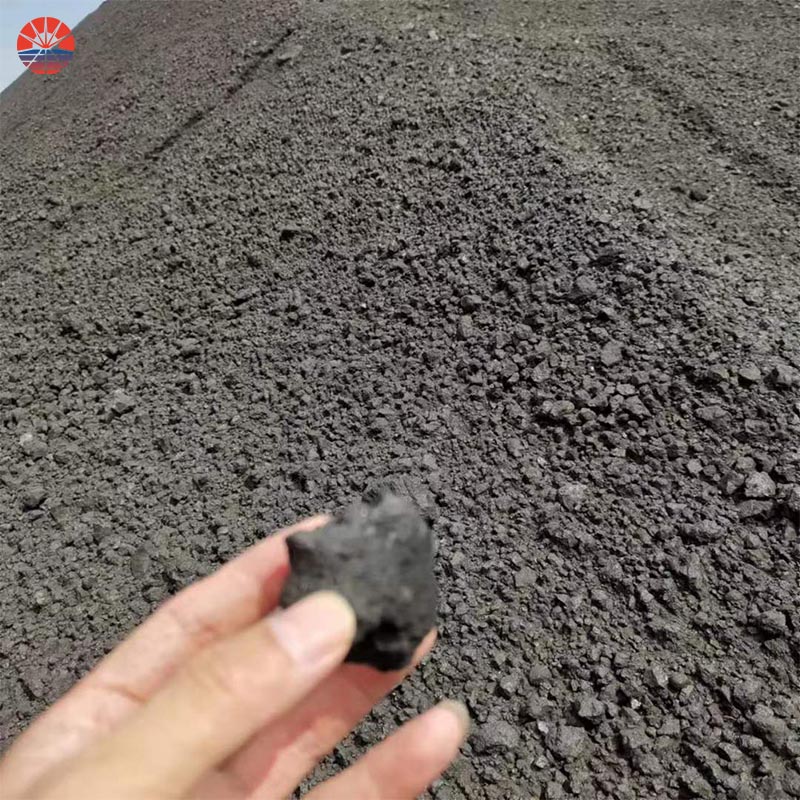Benefits Of Using Petroleum Coke In Cement Plants
The use of petroleum coke (petcoke) in cement plants offers several benefits due to its high carbon content and calorific value. Some of the advantages of using petcoke in cement manufacturing include:
High Calorific Value: Petcoke has a higher calorific value compared to coal, meaning it provides more heat energy per unit of weight. As a result, cement plants can achieve higher temperatures in their kilns, which can lead to improved fuel efficiency and potentially lower energy costs.
Cost-Effectiveness: Petcoke is often more cost-effective than other traditional fuels like coal or natural gas. Cement manufacturers may choose petcoke as a fuel option to reduce their operational expenses and maintain competitiveness.
Stable Supply: The petroleum refining process produces petcoke as a byproduct, ensuring a relatively stable and consistent supply for cement plants that use it as a fuel source.
Reduced Emissions: Petcoke typically has a lower sulfur content than some coals. Using petcoke as a partial substitute for coal in cement kilns can lead to reduced sulfur dioxide (SO2) emissions, which can contribute to improved air quality and reduced acid rain potential.
Improved Kiln Performance: The high carbon content in petcoke can lead to better temperature control and stability in cement kilns, resulting in improved kiln performance and production efficiency.
Lower NOx Emissions: Petcoke combustion generally produces lower nitrogen oxide (NOx) emissions compared to coal combustion. This can be beneficial in meeting environmental regulations related to air pollution.
Reduced Environmental Impact: Cement manufacturers are under increasing pressure to reduce their carbon footprint and environmental impact. Using petcoke in cement plants may be seen as a more sustainable option compared to some other fossil fuels.
Despite these benefits, it's important to consider the potential drawbacks and challenges associated with using petcoke in cement plants. The high carbon content of petcoke can lead to increased carbon dioxide (CO2) emissions, contributing to climate change. Additionally, petcoke combustion can release other pollutants, such as particulate matter and heavy metals, which may impact air quality and human health.
As with any fuel source, the use of petcoke in cement plants is subject to regulatory standards and environmental considerations. Cement manufacturers are increasingly exploring cleaner and more sustainable fuel options, including alternative fuels made from renewable or waste materials, as part of their efforts to achieve greater environmental sustainability and reduce their carbon footprint.
The role of using petroleum coke in cement plants
The role of using petroleum coke (petcoke) in cement plants is primarily as a supplementary fuel. Petcoke is a carbon-rich solid material and a byproduct of the petroleum refining process. When used in cement plants, it serves as an alternative fuel source alongside traditional fossil fuels, such as coal and natural gas. Here are the key roles of petcoke in cement plants:
Energy Source: Petcoke is used as an energy source in cement plants to provide heat for the cement kiln. The cement kiln is a large, high-temperature furnace where raw materials, such as limestone, clay, and other minerals, are heated to produce clinker. Clinker is the intermediate product in cement production that is then ground into cement.
High Calorific Value: Petcoke has a high calorific value, meaning it contains a significant amount of energy per unit mass. This high energy content makes petcoke an efficient fuel to generate the heat required for the cement kiln's high-temperature processes.
Cost-Effectiveness: Petcoke is often cheaper than other conventional fuels, such as coal or natural gas. Using petcoke as a fuel source can lead to cost savings for cement manufacturers and improve their competitiveness.
Stable Supply: The petroleum refining industry consistently produces petcoke as a byproduct, providing a stable and reliable supply for cement plants that choose to use it as a fuel source.
Reducing Carbon Footprint: Compared to some other fossil fuels like coal, petcoke generally has a lower carbon content. Using petcoke as a supplementary fuel can help reduce the overall carbon dioxide (CO2) emissions associated with cement production, contributing to the cement industry's efforts to mitigate its environmental impact.
Lower Sulfur Content: Petcoke typically has lower sulfur content compared to some coal types. This can help reduce sulfur dioxide (SO2) emissions during the cement production process, contributing to better air quality and environmental protection.
It's important to note that the use of petcoke in cement plants may be subject to environmental regulations and emission standards, as the combustion of petcoke can release pollutants, such as nitrogen oxides (NOx) and particulate matter. Cement manufacturers are increasingly exploring more sustainable and environmentally friendly practices, including the use of alternative fuels derived from biomass or waste materials, to further reduce their carbon footprint and environmental impact.














